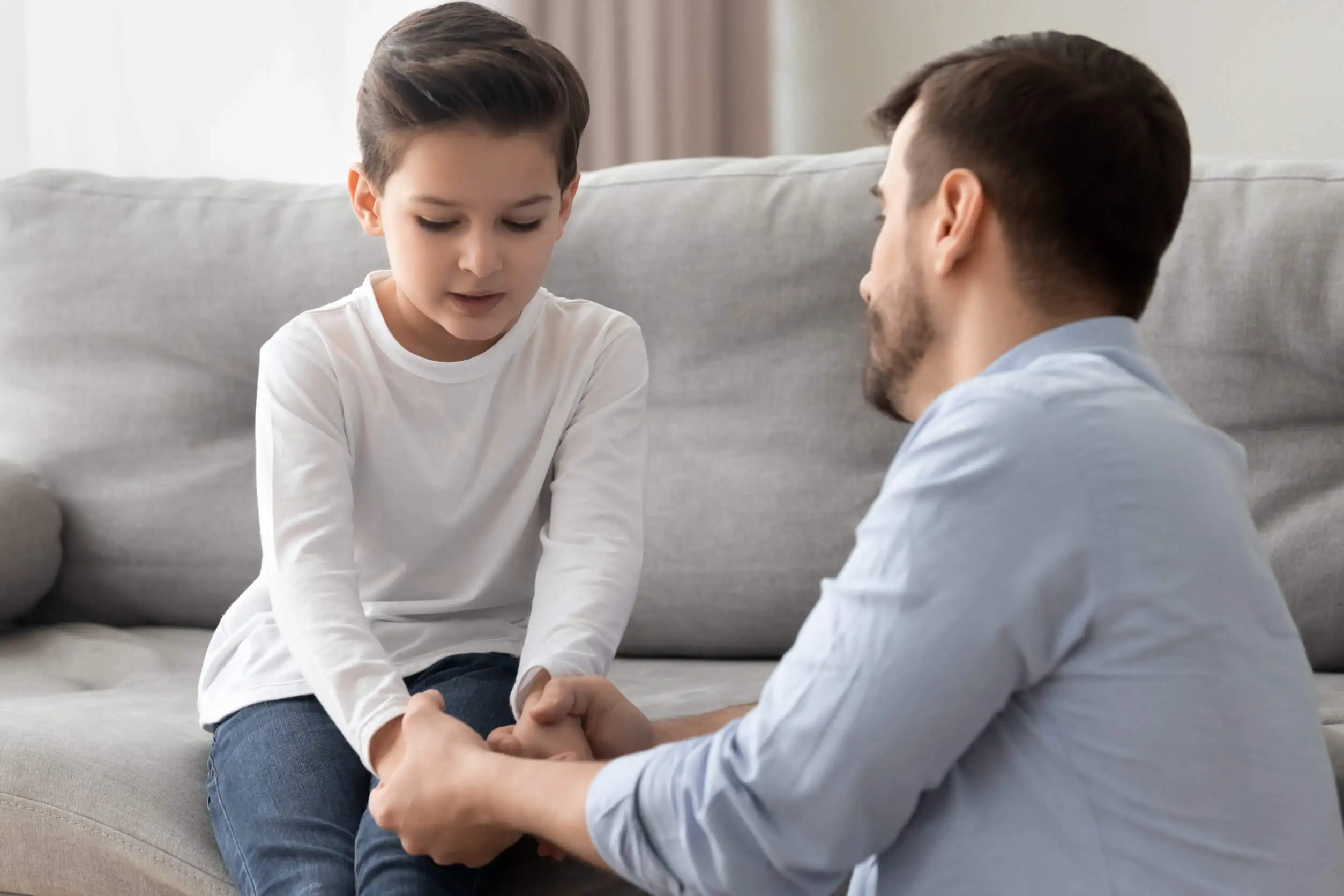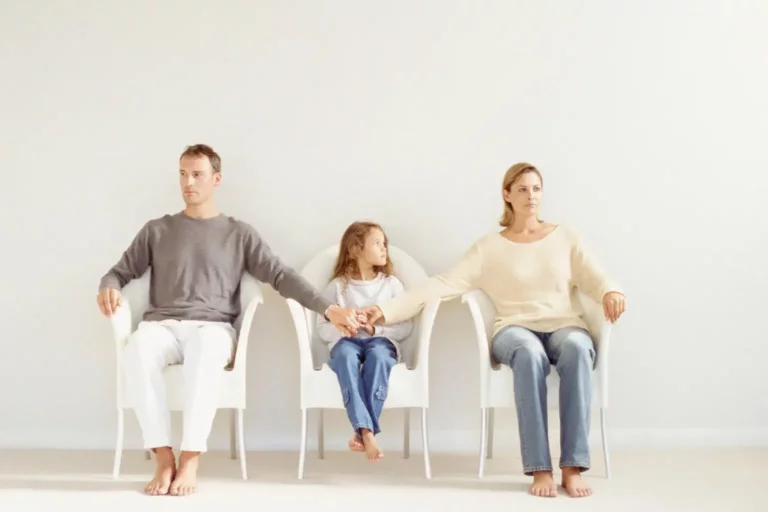7 Tips for Talking to Your Children About Divorce


Written and verified by the psychologist Elena Sanz
A few decades ago, children of divorced parents were in the minority and suffered more often from confusion, disorientation, and stigma. Today, divorce is a more common reality, but that doesn’t make it any easier to assimilate. That’s why we’d like to share some keys to talking to your children about divorce with you.
Even if your children already know about marital separations and have experienced it in their close environment, experiencing the change in their own family will be painful. The separation will affect the child and transform his or her life, but it doesn’t have to be a traumatic event.
This will depend, to a large extent, on the communication skills and emotional intelligence of the parents. Knowing how to approach the news and transmit it appropriately, as well as accompanying the assimilation process, is important. If you don’t know where to start, these tips may be useful.
1. When to talk to your children about the divorce
It’s important not to communicate the news to the children until the divorce is a firm decision. Sometimes, questions come and go, and what seemed like an inevitable separation ends up being given a new opportunity.
Living these ups and downs can be very confusing for children and adolescents. So, wait until you’re clear on your position before starting the conversation.
Once you’ve decided, choose an appropriate time when you can be alone and calm. Keep the conversation at home, as this is a safe place for them.
Talk to all your children at the same time. Eliminate distractions, such as TV or cell phones, and look them in the eye. You can even make sure to maintain some physical contact if your children are very young.
It’s a very good idea that both parents are present in the conversation, and that you show a united front. This will bring as sense of security to the children, because they’ll see that they can continue to trust both of you.

2. What to say about the reasons for the breakup
It’s natural that children want to know the reasons why their parents are getting divorced. In this case, the most appropriate thing to do is to answer sincerely but with a clear head: don’t lose sight of the fact that you’re both their main attachment and reference figures.
They don’t need to hear blaming, accusations, or reproaches.
You can explain that, at this point, continuing to be a couple is not the best option for you. Tell them that you’ve tried to make the relationship work, but that sometimes living together and adult life is complicated, and this is the best decision for everyone.
Also, take into account the age of the children to adapt the language and explanations to their ability to understand.
We think you may also enjoy reading this article: 7 Tips for Getting Past a Traumatic Divorce
3. Explain how the divorce will affect their lives
When talking to your children about the divorce, it’s critical that you explain how it will affect their lives on a practical level. What’s going to happen and when? Issues such as where they will live, how much time they will spend with each parent, and whether they will change schools, activities, or routines should all be addressed.
Having the answers to these types of questions before the talk can be important to convey clarity and structure and not leave them swimming in a sea of doubt and uncertainty. Explain that you will take into account their opinion regarding the division of time, but that they don’t have to choose or worry about it.
You, the adults, will decide. Also, they should know that you will do everything possible not to disrupt their life and their daily routine.
Like this article? You may also like to read: Sex After Divorce: What Should I Know?
4. Reassure them of your unconditional love
If there’s one important message to convey in this situation, it’s unconditional love. Assure the children that you both love them unconditionally and that this won’t change. Make sure they know that they can still count on both of you for everything they need and that you will be by their side, even if you no longer live together.
They may fear that, just as your love for each other has ended, so too will your love for them. Therefore, it’s necessary to reaffirm and reassure them that they will continue to receive love, presence, and support from both of you. Make sure they know that you’re still their parents and will work together to give them the best.
5. Avoid guilt
It may be hard for you to understand, but many children tend to blame themselves when their parents’ divorce. They assume that this has happened because they have misbehaved, made a mistake, or haven’t been up to the task.
So, even if your children don’t verbalize it, reassure them that the decision has nothing to do with them, that they’re wonderful, and it’s a matter of adults and couples.
6. Allow them to express their emotionals
When talking to your children about the divorce, you may observe mixed and unexpected reactions. Some children are very affected, while others seem totally indifferent.
The defense mechanisms of each child may be very different, and this is not easy news to assimilate. So, first and foremost, be patient.
Children need to be allowed to express their emotions, whether they ‘e angry and furious, confused, or sad. Whether they need to cry, ask questions, or leave the conversation for later. It’s important to respect them and not repress their feelings.
It’s also good for you, as parents, to express how the change makes you feel. This won’t detract from your authority; on the contrary, showing vulnerability will help your children see that it’s natural to have and express emotions.
You can ask them how they’re feeling and if there’s anything specific they need to know. However, you should also pay attention to their non-verbal language and expressions, as it may be difficult for them to verbalize, especially the younger ones.

7. After talking with your children about divorce, accompany them
Finally, keep in mind that this conversation will only be the beginning; it’s a first contact with the coming change. Your children and teens will need to revisit the topic later, raise issues as they arise, or express their emotions once they come to terms with it.
Bring up new conversations as the days and months go by. Be ready for spontaneous ones that may emerge.
In short, talking with children about divorce is not easy. It’s a confusing and painful situation for everyone.
However, by planning ahead for this talk, showing a united front, and, above all, offering love and reassurance to the children, it will be an easier pill to swallow. This will only be the beginning, but it will lay the groundwork for them to understand that neither love nor family is over; they’re just going to transform.
All cited sources were thoroughly reviewed by our team to ensure their quality, reliability, currency, and validity. The bibliography of this article was considered reliable and of academic or scientific accuracy.
- Bolaños, I. (2015). Custodia compartida y coparentalidad: una visión relacional. Psicopatología Clínica Legal y Forense, 15(1), 57-72.
- Cantón, J, Cortés, M. R., & Justicia, M. D. (2002). Las consecuencias del divorcio en los hijos. Psicopatología Clínica Legal y Forense, 2(3), 47-66.
This text is provided for informational purposes only and does not replace consultation with a professional. If in doubt, consult your specialist.








